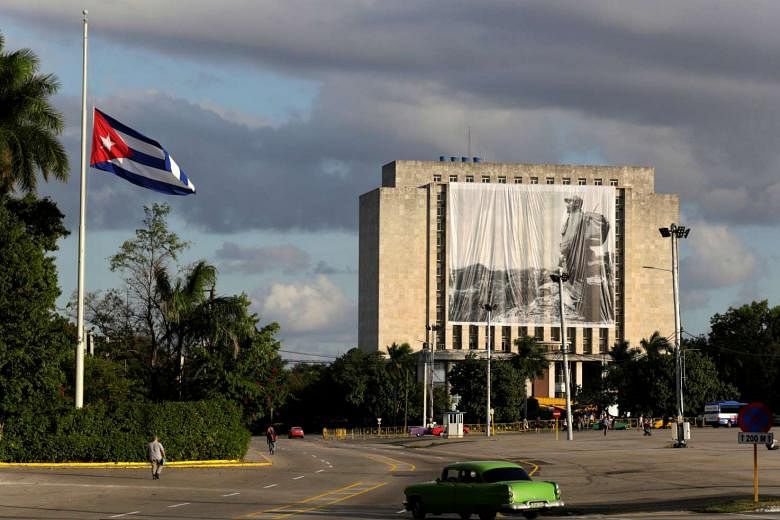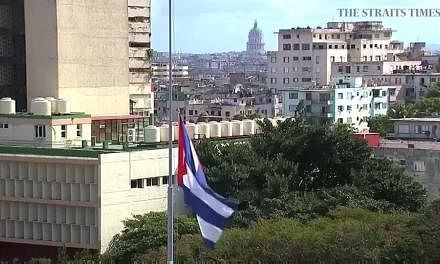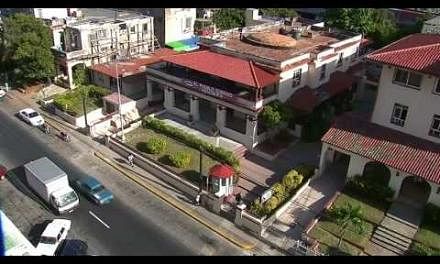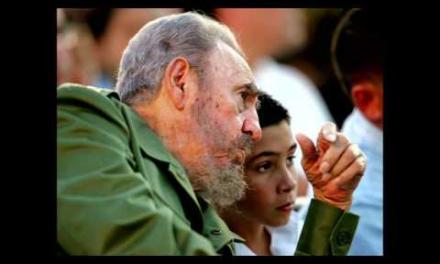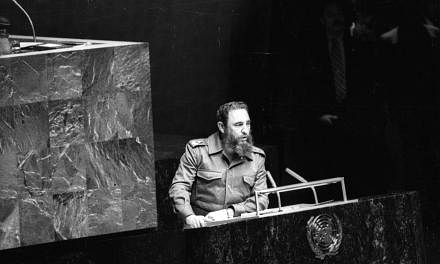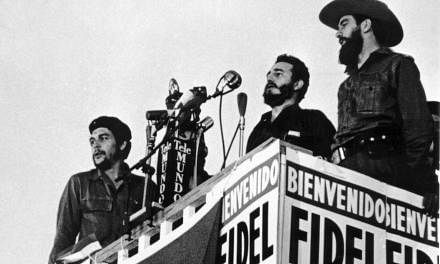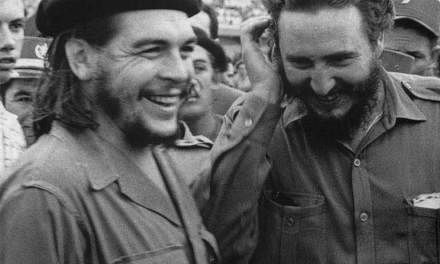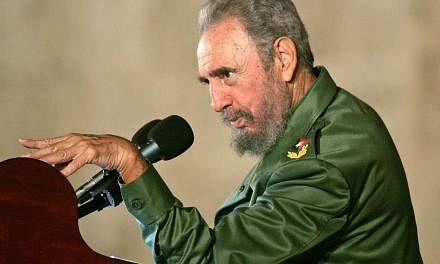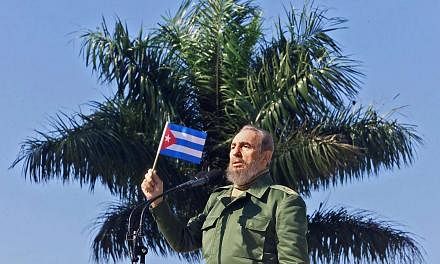HAVANA (AFP) - Throngs are set to pay tribute to Dr Fidel Castro at Havana's iconic Revolution Square on Monday (Nov 28), kicking off a week-long farewell to Cuba's divisive Cold War titan.
After a subdued weekend following his death on Friday, hundreds of thousands are expected to flock to the plaza where Dr Castro would often rail against the US "yankees" and "empire" during his legendary, marathon speeches.
"You'll see how the people of Cuba really are. You'll see how they are suffering, how they feel about a person they love," said Mr Jorge Guilarte, a 50-year-old bike-taxi driver.
Dr Castro, whose 1959 revolution toppled a dictatorship with the promise of bringing justice and equality to his Caribbean island, was a major 20th century figure.
While some saw him as a socialist hero who brought education and free healthcare to this country, others labelled him a "dictator" who caused economic hardship and sparked an exodus of Cubans to Florida seeking a better life.
In a sign of changing times, US President Barack Obama visited the plaza during his historic visit to Havana in March, when he became the first US leader since 1928 to step foot in Cuba.
In 2014, his brother and successor, Mr Raul Castro, announced a diplomatic detente with Mr Obama, who has lifted some trade barriers. On Monday, the first regular flights from the United States to the Cuban capital will resume.
Mr Raul Castro has enacted modest, slow reforms that have slightly opened up the economy. Government opponents hope that his brother's death will prompt him to launch bolder changes.
Dr Castro handed power to his brother in 2006 after undergoing emergency intestinal surgery. His cause of death on Friday at age 90 has not been disclosed.
At the Revolution Square, famous for a government building adorned with the face of Argentine-born guerilla Ernesto "Che" Guevara, organisers installed a giant photo at the National Library of Dr Castro carrying a rifle during the revolution that brought him to power.
Officials have yet to confirm whether an urn carrying his ashes will be placed on a platform so that Cubans can file in front of his remains.
"Fidel is the people. Everybody loves him here. I'm expecting the plaza to overflow with people, like when he would come to meet the people," said Ms Ernestina Suarez, a 67-year-old housewife. "Saying goodbye to Fidel will be beautiful," she said.
Dissidents who were repressed by his regime for years said they were happy that the "dictator" had died, but they called off regular demonstrations on Sunday out of deference to those in mourning.
"We are not happy about the death of a man, a human being. We are happy about the death of dictators," Ms Berta Soler, leader of the Ladies in White, told AFP.
In Miami, where so many flocked in the past decades, Cuban-Americans celebrated the death of the man they called a "tyrant" with street parties throughout the weekend.
After two days of commemorations in the capital, Dr Castro's ashes will go on a four-day islandwide procession starting on Wednesday before being buried in the south-eastern city of Santiago de Cuba on Dec 4.
Santiago, Cuba's second city, was the scene of Dr Castro's ill-fated first attempt at revolution in 1953 - six years before he succeeded in ousting the US-backed dictator Fulgencio Batista.
Dr Fidel Castro, who came to power as a bearded, cigar-chomping 32-year-old, adopted the slogan "socialism or death" and kept his faith to the end.
He survived more than 600 assassination attempts, according to aides, as well as the failed 1961 US-backed Bay of Pigs invasion.
His outrage over that botched invasion contributed to the Cuban missile crisis the following year, when the world stood on the brink of nuclear war.
The USSR bankrolled Dr Castro's regime until 1989, when the Soviet bloc's collapse sent Cuba's economy into free-fall.
Mr Daniel Martinez, a 33-year-old cook, is not a fan of the regime but was not thrilled with the celebrations in Miami.
"I have nothing personal against Fidel, but I am not a 'Castrista'. I don't consider myself a dissident. I simply don't like this system, neither with Fidel nor with Raul," he said. "Nothing changes here. Nothing moves."
